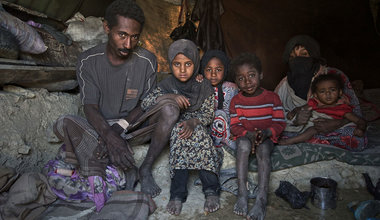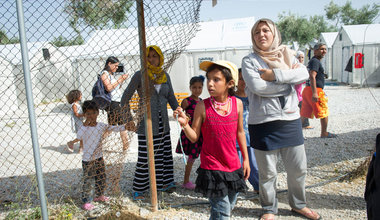UN ramps up aid delivery amid new surge of Rohingya refugees in Bangladesh
 The speed and scale of people fleeing Myanmar has triggered a humanitarian emergency in Bangladesh, where hundreds of thousands of refugees now depend on humanitarian assistance for shelter, food, water and other life-saving needs, says the United Nations migration agency.
The speed and scale of people fleeing Myanmar has triggered a humanitarian emergency in Bangladesh, where hundreds of thousands of refugees now depend on humanitarian assistance for shelter, food, water and other life-saving needs, says the United Nations migration agency.
“The seriousness of the situation cannot be over-emphasized,” said International Organization for Migration (IOM) Bangladesh Chief of Mission Sarat Dash in a press statement.
According to the IOM-hosted Inter Sector Coordination Group (ISCG) of aid agencies, an estimated 536,000 people have fled Myanmar and arrived in Cox’s Bazar over the past 47 days. Numbers spiked again when some 15,000 more crossed into Bangladesh between 9-11 October.
Prior to the August influx, infrastructure and basic services in Cox’s Bazar were already under strain as it hosted over 200,000 displaced Rohingya.
“These people are malnourished and there is insufficient access to clean water and sanitation in many of the spontaneous sites. They are highly vulnerable. They have fled conflict, experienced severe trauma and are now living in extremely difficult conditions,” underscored Mr. Dash.
With many of the new arrivals requiring immediate health assistance, agencies have appealed for $48 million to scale up primary health care in the new settlements over the next six months.
“The risk of an outbreak of communicable disease is very high given the crowded living conditions and the lack of adequate clean water and sanitation,” said IOM Senior Regional Health Officer Patrick Duigan, pointing out that maternal, newborn and child health care are also in desperately short supply.
While almost all new arrivals need non-food items, the spike in migrants is also overwhelming existing water, sanitation and hygiene facilities.
With the population in multiple sites and settlements more than doubling since 25 August, there is tremendous pressure on existing settlements, resulting in a huge site management need for some 700,000 people, costing an estimated $65 million, according to ISCG site management agencies.
Meanwhile, former UN Secretary-General Kofi Annan, in his capacity as Chair of the Advisory Commission on Rakhine state, is in New York to brief a closed-door session of the Security Council on the situation. He is expected to speak to reporters after the meeting.
Collecting refugee data
At the same time, the Office of the High Commissioner for Refugees (UNHCR) has been working with the Government in a new ‘family counting’ exercise to collect data on the estimated 536,000 newly-arrived refugees and their needs.
“The exercise will enable the Government, UNHCR and other agencies to have a better understanding of the size and breakdown of the population and where they are located,” UNHCR spokesperson Andrej Mahecic told reporters at today's regular press briefing in Geneva.
“It is key for getting the right aid to the right people. It will also help flag refugees with special protection needs, such as single mothers with small infants, people with disabilities, or children and elderly refugees who are on their own,” he added.
The exercise has so far counted 17,855 families – more than 70,000 individuals. It is currently being carried out in the Balukhali Extension and Kutupalong Extension camps and should cover an estimated 525,000 people over the coming weeks.
Mr. Mahecic said that UNHCR is working closely with refugee community leaders on presenting information to the new arrivals and providing equipment and the database. The data will, in turn, be shared with other service providers.
Meanwhile, IOM, UNHCR and the UN Office for Coordination of Humanitarian Affairs (OCHA) are organizing a donor pledging conference to raise $434 million for the immediate needs of the refugees and the local communities hosting them.
 ONU
ONU







